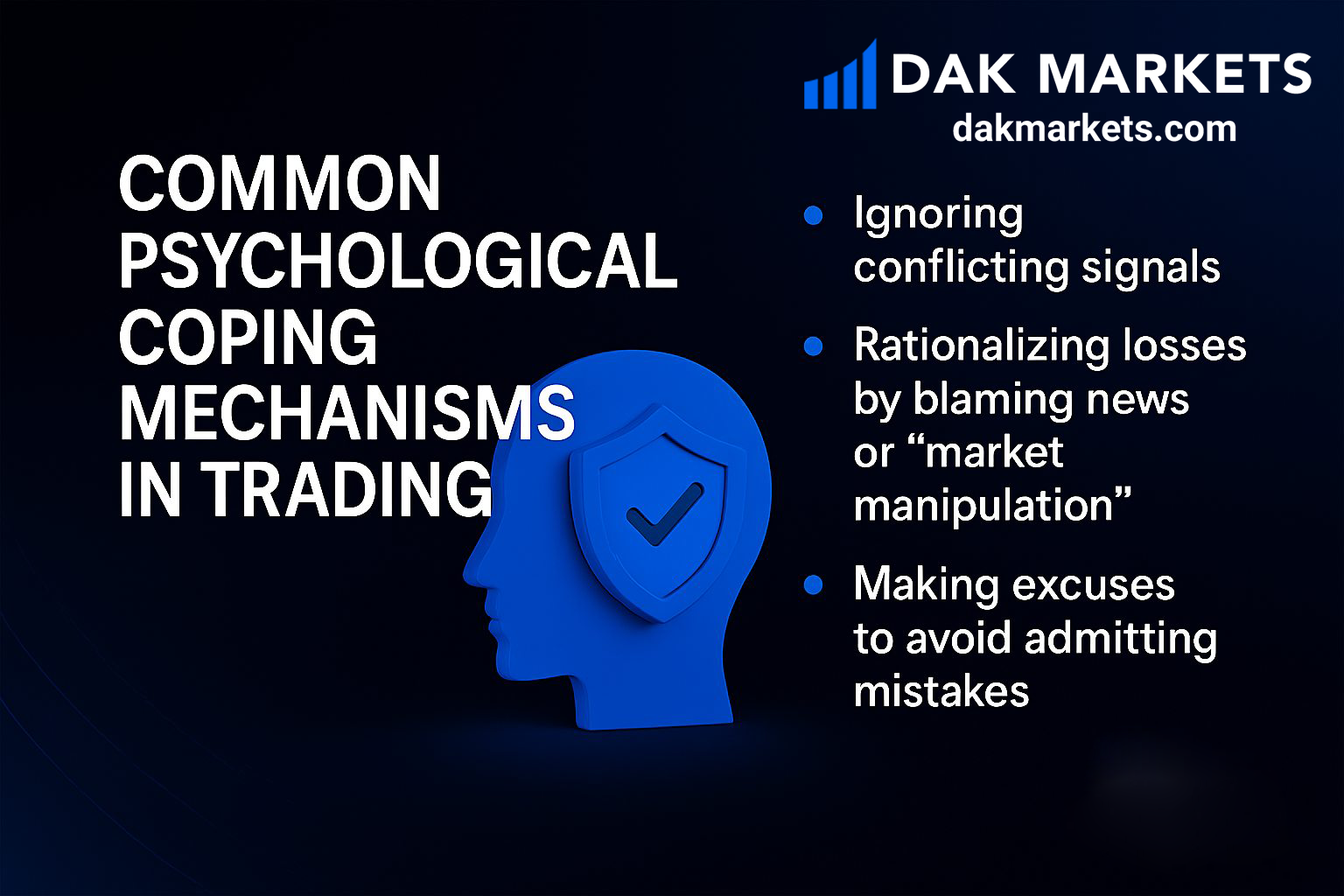Introduction: The Psychology of Pain in Everyday Life vs. Trading
In everyday life, pain avoidance is built into human behavior. If you touch a hot stove, you pull back. Before diving into a pool, you instinctively check its depth. These responses keep us safe from physical harm.
But trading is different. The pain here is not physical—it’s emotional. Losses hurt because they challenge our confidence, self-worth, and discipline. And unlike a hot stove, there’s no reflex that instantly protects us.
The Emotional Pain Mechanism in Trading
Why Emotional Pain Hurts More Than Financial Loss
A $200 loss isn’t just a financial figure—it can feel like a personal failure. Traders often tie their self-image to their performance. DAK Markets coaches traders to separate self-worth from outcomes, making losses easier to handle objectively.
Common Psychological Coping Mechanisms in Trading
- Ignoring conflicting signals
- Rationalizing losses by blaming news or “market manipulation”
- Making excuses to avoid admitting mistakes
- Holding onto losing trades far too long
The Dangers of Mismanaged Expectations
Unrealistic Scenarios Traders Fall Into
The Classic Example: Sticking to a Losing Trade
Why Managing Expectations Matters in Trading
Practical Steps to Manage Expectations Effectively
Step 1: Define Realistic Trading Goals
- Steady monthly growth
- Evaluating execution, not just profits
- Setting achievable benchmarks based on tested strategies
Step 2: Focus on Process Over Outcome
Step 3: Accept Uncertainty as Normal
Step 4: Use Risk Management as a Safety Net
Step 5: Practice Emotional Awareness
- Am I ignoring market evidence?
- Am I rationalizing losses instead of adjusting?
- Am I holding trades for ego, not strategy?
Trading Without Unrealistic Pressure
- Expect the market to be unpredictable.
- Expect both wins and losses.
- Expect yourself to stick to your rules.
Lessons Beyond Trading: Managing Expectations in Life
Final Thoughts: Let Go, and Trade Smart
FAQs on Managing Expectations in Trading
Why do traders struggle with managing expectations?
How can unrealistic expectations ruin trading performance?
Is it possible to trade without expectations?
What’s the difference between goals and expectations in trading?
How do I train myself to accept uncertainty in trading?
By reframing losses as business expenses. DAK Markets trains traders to embrace uncertainty as part of success.
What role does risk management play in managing expectations?
